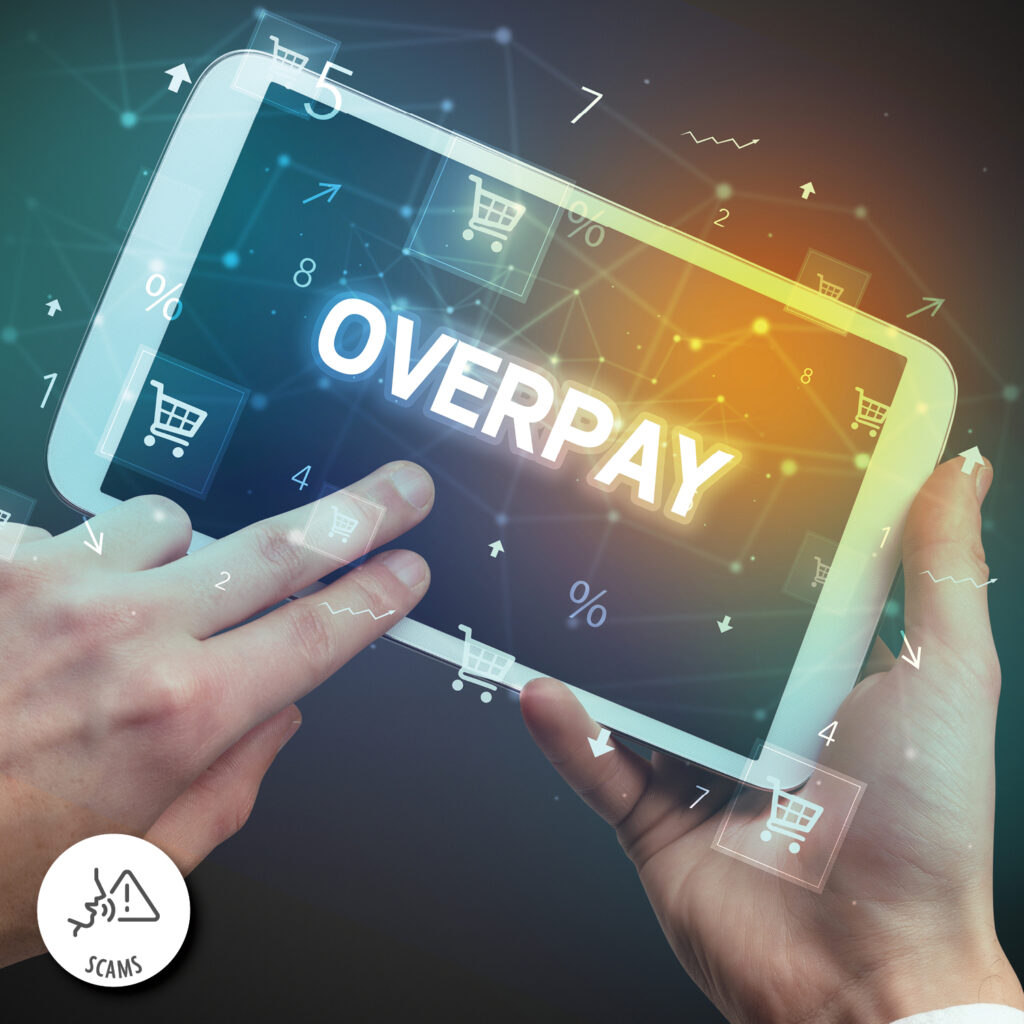Overpayment scams are common, and for the unaware, they can be difficult to spot. Here is what you need to know to avoid falling victim to these ruses.
What is an overpayment scam?
In an overpayment scam, fraudsters target someone who is selling a high-valued item online, such as a car. The scammer will reach out to the seller and offer to buy their item for more than the asking price. Then, they will send the seller payment in the mail.
At this point, the seller is thrilled. But, when the check comes, it brings with it a surprise – the buyer overpaid. Soon after, the alleged buyer contacts the seller, asking them to refund the surplus. The seller will comply, not wanting to keep money that is not theirs. The next thing they know, the original check has not cleared, and they realize they have been swindled. Now they have not been paid for the purchase they believed the check writer was buying, and they have also lost the money they have sent to the scammer.

Red Flags:
When selling an item online, look out for these red flags, which can alert you to an overpayment scam:
- You are offered more than your asking price for an item you are selling online.
- You are paid more than you are owed for an item you are selling.
- You are urged to act quickly and accept a buyer’s offer or risk having them pull the offer.
- You are asked to refund an overpayment via wire transfer or prepaid debit card.
How to avoid overpayment scams:
- Always know who your buyer is. Confirm the name, street address, and telephone number independently.
- Never accept payment for more than your selling price.
- Never agree to finalize a transaction until the buyer’s check has cleared.
- Never agree to wire funds back to a buyer.
- Do not be tempted by offers that urge you to “act now.”
- Do not accept payment by check from an unknown buyer.
- If you do accept payment by check, ask for one associated with a local bank, or a bank with a local branch. This way, you can stop in to verify authenticity.
- If cash is not an option, and you want to avoid checks, consider an alternative method of payment, such as an escrow service or online payment service.
If you have been targeted:
If you believe you have been targeted by an overpayment scam, there are steps you can take to mitigate the damage.
First, report the scam to your financial institution and the platform where you are selling from. Next, alert the FTC at ftc.gov so they can do their part in catching the criminals. Finally, let your local law enforcement agencies know about the scam. More fraud resources can be found by clicking here.
